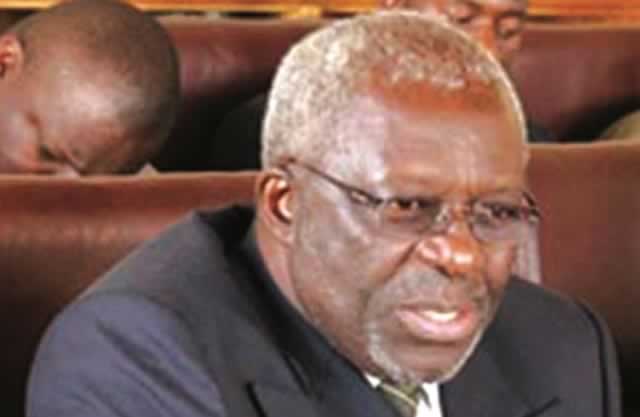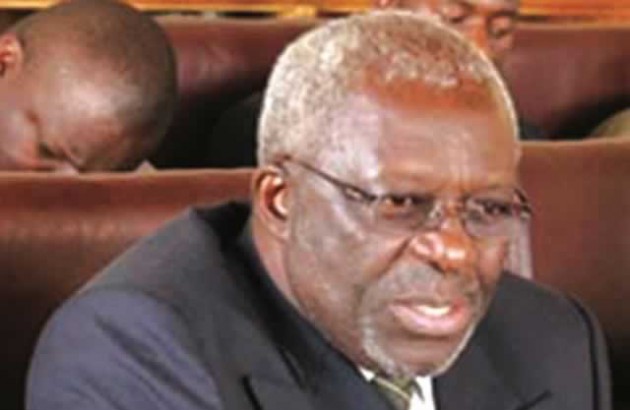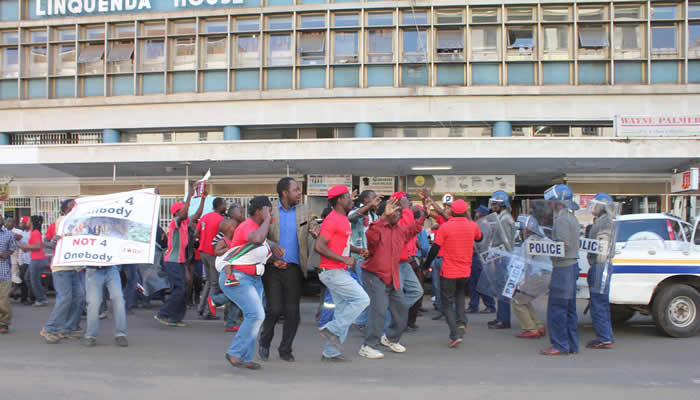Sadc Summit snubs MDC-T, ZimPF


Ambassador Bimha
Felex Share Senior Reporter
An attempt by opposition political parties and their appendages in civil society to smuggle Zimbabwe onto the Sadc Summit agenda this week failed dismally, with analysts saying the opposing forces had displayed “sterility” on how the regional bloc works.
Mr Morgan Tsvangirai’s MDC-T, Dr Joice Mujuru’s Zimbabwe People First and other parties under the banner of National Electoral Reform Agenda (Nera) wanted regional leaders to discuss minor cases of violence that occurred last week.
Opposition elements were behind the violence which saw them looting shops, burning vehicles and attacking innocent people.
They were supported in their quest to put the country on the agenda by a group calling itself “Elders” comprising Mr Kofi Annan, Bishop Desmond Tutu and Mrs Graca Machel.
Read more:
The trio last week wrote to Sadc calling on them to “support an inclusive transition in Zimbabwe” on the back of violent opposition demonstrations.
The 36th Sadc Summit of Heads of States and Government in Swaziland on Tuesday and Wednesday found the issue frivolous and concentrated on their agenda that focused on regional industrialisation.
Secretary for Foreign Affairs Ambassador Joey Bimha yesterday said the regional body followed procedures and would never waste time on items brought irrationally.
“The agenda of Sadc is formulated by the (Sadc) chair in consultation with the secretariat,” he said.
“It is decided well before the summit. Items do not just find themselves on the agenda. It’s impossible. The agenda will consist mostly of the implementation of decisions that were made by summit.”
Ambassador Bimha added: “Like in this (Swaziland) case, the summit met and made decisions and the duty of the executive secretary between now and the next summit is to see the implementation of those decisions. A good part of the next summit will be devoted to seeing whether those decisions were implemented. If there are any new issues they are also down and brought by the chair in consultation with the executive secretary, that is the procedure.”
Swaziland’s King Mswati III now chairs the rotational Sadc chairmanship after taking over from Botswana President Ian Khama.
President Mugabe, who set the regional industrialisation agenda the bloc is now seized with, was chairperson between August 2014 and August 2015.
Political analyst Professor Sheunesu Mupepereki said it was clear opposition forces had run out of ideas.
“Their current efforts reflect sterility of ideas on the part of the opposition,” he said.
“They have run out of ideas. The opposition is irrelevant to our current situation especially in terms of addressing matters of the economy. They are simply looking for ways to become relevant but what they are doing is not in sync with the situation that we have. All Zimbabweans should be seized with finding best ways of improving our economy but if you look at the whole idea that people go and demonstrate against an elected Government, it’s a non-starter. When you promote thuggish behaviour as a political process, then you are bound to fail.”
He went on: “There is no cause. It does not address anything and police must move in and ensure there is law and order. The country is faced with economic and political challenges which are generated by the same Western countries who are sponsoring them. This is why Sadc leaders are ignoring them.”
The opposition elements are also angling for a buy-in from the African Union and the United Nations, plans which analysts said would be futile again.
Said another political analyst Mr Goodwine Mureriwa: “Sadc is a region that is devoid of unconstitutional means of removing Governments. The reality is that Sadc does not condone violence and has never accepted even military coups. Southern Africa is perhaps the most peaceful region in Africa.
“Regional countries, especially South Africa, have been firm that they do not want to interfere in Zimbabwe because the country had elections in 2013 and the outcome was convincing to all. It was free and fair and President now has a mandate to rule until 2018. White people’s interests in Southern African countries are very apparent and liberation movements in the region have always have had meetings on a yearly basis because they know that governments in Europe want to remove them and have access to resources.”









Comments